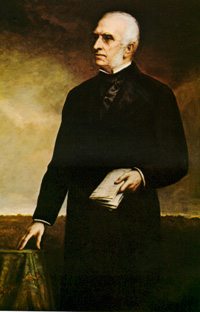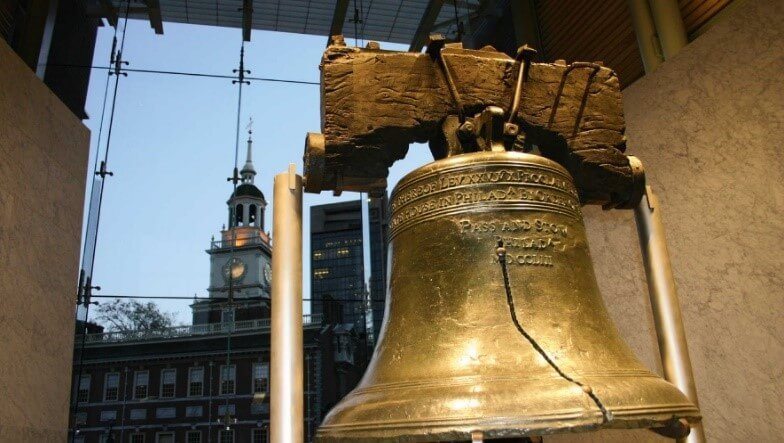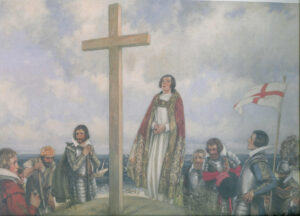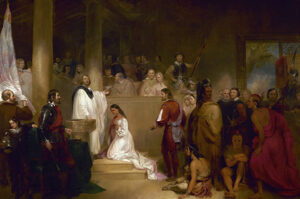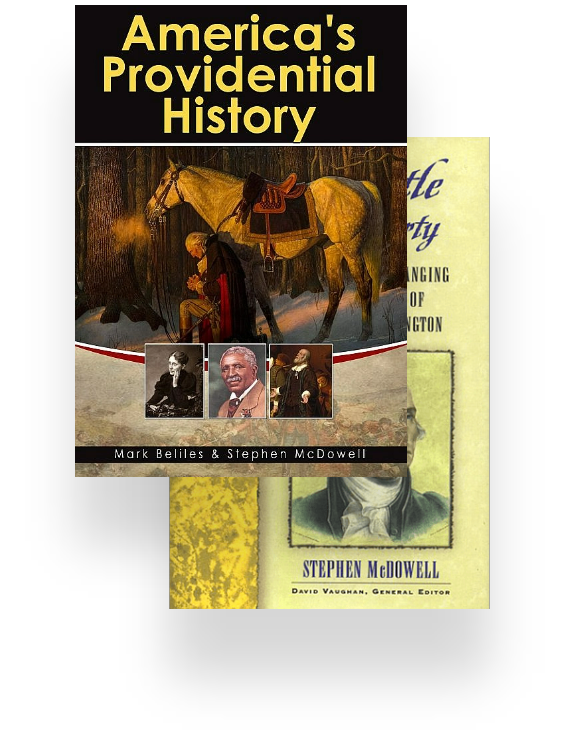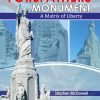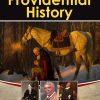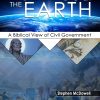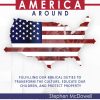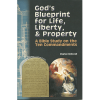By Stephen McDowell
The Declaration of Independence is a Christian document — Christian because it reflects many biblical principles, including the Christian idea of man and government, Christian self-government, biblical means of resisting tyranny, limited nature of civil government, the biblical purpose of government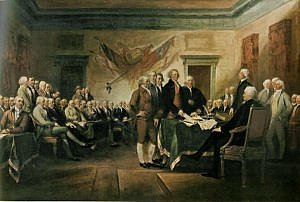 , to name a few. It acknowledges God and His revealed will as the source of rights and law. It appeals directly to God as the Supreme Judge, protector, and provider. The ideas contained in our founding covenant reiterate those expressed in the civil documents written by the colonists in the 150 years prior to independence and show the Founders’ Christian faith.
, to name a few. It acknowledges God and His revealed will as the source of rights and law. It appeals directly to God as the Supreme Judge, protector, and provider. The ideas contained in our founding covenant reiterate those expressed in the civil documents written by the colonists in the 150 years prior to independence and show the Founders’ Christian faith.
Reading the Declaration of Independence and identifying biblical ideas is an exercise every Christian should undertake. Doing so will reveal one’s ability to reason biblically and to identify Christian ideas of government. It will also show how much history someone knows, since understanding the context will enable you to find more Christians ideas.
Most Americans (including Christian Americans) have not read the Declaration of Independence. For those who have, few can identify many biblical principles in the document. Why? One, they are a product of secular schools which teach that our nation was founded upon enlightenment ideas, and any reference to a higher power was merely out of cultural deference to some deistic God. Two, for those who are Christians, most have not been taught by their pastors and churches how to reason biblically regarding governmental or civil issues.
How many Christian ideas can you identify in the Declaration?
Let’s see how you well do in this exercise. Read the Declaration of Independence that follows. As you read, write down all the biblical ideas you can. A list of some of these ideas follows the document. The list is not exhaustive by any means, but shows that the Declaration is much more biblical than most people have ever considered.
(For a brief summary of the events surrounding the adoption of the Declaration see the article, “What Really Happened on July 4th”)
____________________
Declaration of Independence (1776)
When in the Course of human events, it becomes necessary for one people to dissolve the political bands which have connected them with another, and to assume among the powers of the earth, the separate and equal station to which the Laws of Nature and of Nature’s God entitles them, a decent respect 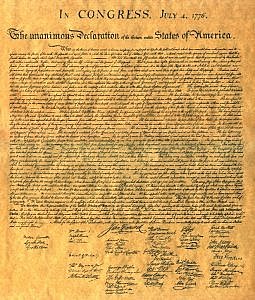 to the opinions of mankind requires that they should declare the causes which impel them to the separation.
to the opinions of mankind requires that they should declare the causes which impel them to the separation.
We hold these truths to be self-evident, that all men are created equal, that they are endowed by their Creator with certain unalienable Rights, that among these are Life, Liberty and the pursuit of Happiness. That to secure these rights, Governments are instituted among Men, deriving their just powers from the consent of the governed. That whenever any Form of Government becomes destructive of these ends, it is the Right of the People to alter or to abolish it, and to institute new Government, laying its foundation on such principles and organizing its powers in such form, as to them shall seem most likely to effect their Safety and Happiness. Prudence, indeed, will dictate that Governments long established should not be changed for light and transient causes; and accordingly all experience hath shown that mankind are more disposed to suffer, while evils are sufferable, than to right themselves by abolishing the forms to which they are accustomed. But when a long train of abuses and usurpations, pursuing invariably the same Object evinces a design to reduce them under absolute Despotism, it is their right, it is their duty, to throw off such Government, and to provide new Guards for their future security.
Such has been the patient sufferance of these Colonies; and such is now the necessity which constrains them to alter their former Systems of Governments. The history of the present King of Great Britain is a history of repeated injuries and usurpations, all having in direct object the establishment of an absolute Tyranny over these States. To prove this, let Facts be submitted to a candid world.
He has refused his Assent to Laws, the most wholesome and necessary for the public good.
He has forbidden his Governors to pass Laws of immediate and pressing importance, unless suspended in their operation till his Assent should be obtained; and when so suspended, he has utterly neglected to attend to them.
He has refused to pass other Laws for the accommodation of large districts of people, unless those people would relinquish the right of Representation in the Legislature, a right inestimable to them and formidable to tyrants only.
He has called together legislative bodies at places unusual, uncomfortable, and distant from the depository of their public Records, for the sole purpose of fatiguing them into compliance with his measures.
He has dissolved Representative Houses repeatedly, for opposing with manly firmness his invasion on the rights of the people.
He has refused for a long time, after such dissolutions, to cause others to be elected; whereby the Legislative powers, incapable of Annihilation, have returned to the People at large for their exercise; the state remaining in the meantime exposed to all the dangers of invasion from without, and convulsions within.
He has endeavored to prevent the population of these States; for that purpose obstructing the Laws for Naturalization of Foreigners; refusing to pass others to encourage their migrations hither, and raising the conditions of new Appropriations of Lands.
He has obstructed the Administration of Justice, by refusing his Assent to Laws for establishing Judiciary Powers.
He has made Judges dependent on his Will alone, for the tenure of their offices, and the amount and payment of their salaries.
He has erected a multitude of New Offices, and sent hither swarms of Officers to harass our people, and eat out their substance.
He has kept among us, in times of peace, Standing Armies without the Consent of our legislature.
He has affected to render the Military independent of and superior to the Civil power.
He has combined with others to subject us to a jurisdiction foreign to our constitution, and unacknowledged by our laws; giving his Assent to their Acts of pretended Legislation:
For Quartering large bodies of armed troops among us:
For protecting them, by a mock trial, from punishment for any Murders which they should commit on the Inhabitants of these States:
For cutting off our Trade with all parts of the world:
For imposing Taxes on us without our Consent:
For depriving us in many cases of the benefits of Trial by Jury:
For transporting us beyond Seas to be tried for pretended offenses:
For abolishing the free System of English Laws in a neighboring Province, establishing therein an Arbitrary government, and enlarging its Boundaries so as to render it at once an example and fit instrument for introducing the same absolute rule into these Colonies:
For taking away our Charters, abolishing our most valuable Laws, and altering fundamentally the Forms of our Government:
For suspending our own Legislatures, and declaring themselves invested with power to legislate for us in all cases whatsoever.
He has abdicated Government here, by declaring us out of his Protection and waging War against us.
He has plundered our seas, ravaged our Coasts, burnt our towns, and destroyed the lives of our people.
He is at this time transporting large Armies of foreign Mercenaries to complete the works of death, desolation and tyranny, already begun with circumstances of Cruelty and perfidy scarcely paralleled in the most barbarous ages, and totally unworthy the Head of a civilized nation.
He has constrained our fellow Citizens taken Captive on the high Seas to bear Arms against their Country, to become the executioners of their friends and Brethren, or to fall themselves by their Hands.
He has excited domestic insurrections amongst us, and has endeavored to bring on the inhabitants of our frontiers, the merciless Indian Savages, whose known rule of warfare, is an undistinguished destruction of all ages, sexes and conditions.
In every stage of these Suppressions We have Petitioned for Redress in the most humble terms. Our repeated Petitions have been answered only by repeated injury. A Prince, whose character is thus marked by every act which may define a Tyrant, is unfit to be the ruler of a free people.
Nor have We been wanting in attention to our British brethren. We have warned them from time to time of attempts by their legislature to extend an unwarrantable jurisdiction over us. We have reminded them of the circumstances of our emigration and settlement here. We have appealed to their native justice and magnanimity, and we have conjured them by the ties of our common kindred to disavow these usurpations, which would inevitably interrupt our connections and correspondence. They too have been deaf to the voice of justice and of consanguinity. We must, therefore, acquiesce in the necessity, which denounces our Separation, and hold them, as we hold the rest of mankind, Enemies in War, in Peace Friends.
We, Therefore, the Representatives of the United States of America, in General Congress, Assembled, appealing to the Supreme Judge of the world for the rectitude of our intentions, do, in the Name, and by the Authority of the good People of these Colonies, solemnly publish and declare, That these United Colonies are, and of Right ought to be Free and Independent States; that they are Absolved from all Allegiance to the British Crown, and that all political connection between them and the State of Great Britain, is and ought to be totally dissolved; and that as Free and Independent States, they have full Power to levy War, conclude Peace, contract Alliance, establish Commerce, and to do all other Acts and Things which Independent States may of right do. And for the support of this Declaration, with a firm reliance on the protection of Divine Providence, we mutually pledge to each other our Lives, our Fortunes, and our sacred Honor.
____________________________
Some Christian Ideas in the Declaration of Independence
Ideas in the Declaration of Independence that reflect the Christian idea of man and government, and Biblical principles include:
- “people to dissolve” — Power flows from the people (the people under God, see next point). A self-governed people are the source of power in a Christian nation. The government is not unlimited. Jesus taught the concept of limited government when He said we are to render to Caesar the things that are Caesar’s and to God the things that are God’s (Matt. 22:17-21). He also implied it is the responsibility of His people to assure government is limited and does not encroach upon the jurisdictions of the family or church. Lord Acton wrote: “When Christ said ‘Render unto Caesar the things that are Caesar’s and unto God the things that are God’s,’ He gave to the state a legitimacy it had never before enjoyed, and set bounds to it that had never yet been acknowledged. And He
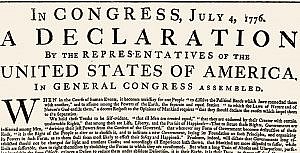 not only delivered the precept but he also forged the instrument to execute it. To limit the power of the State ceased to be the hope of patient, ineffectual philosophers and became the perpetual charge of a universal Church.”
not only delivered the precept but he also forged the instrument to execute it. To limit the power of the State ceased to be the hope of patient, ineffectual philosophers and became the perpetual charge of a universal Church.”
- “the laws of Nature and Nature’s God” — The people and nation were under God. This phrase had a well-established meaning and was defined by many political and theological writers of that time. The laws of nature were understood to mean the revelation of God in His creation and in the conscience of man. All men know that God exists, and they have some knowledge of His moral requirements because they are written upon man’s conscience and are seen in the creation. Yet, man is limited in his ability to clearly see and understand God’s law. Mercifully, God has made them clear via the laws of nature’s God – the revelation of God in the Holy Scriptures. (For more, see Stephen McDowell, The Bible: America’s Source of Law and Liberty, Chapter 8.)
- “declare the causes” — they were giving principled reasons for their actions.
- “We hold these truths to be self-evident”
- There is truth. There is right and wrong. There are absolutes that we can know. This common adherence to truth was what unified early America.
- These truths are self-evident; they need no proof. A self-evident truth is true because it has been naturally implanted in men as a direct revelation from God, without the need of proofs, as Paul discusses in Romans 1 and 2.
- The Declaration recited self-evident truths in order to appeal even to the man without the Bible who knows in his heart that such truths are true, because God has placed them in him (Rom. 2:14-15).
- “that all Men are created equal”
- Truth emanates from the Creator. Men are created by God, and have equal standing before Him. This gives all men value.
- Man was created. Man did not evolve.
- We did not lay the foundation of this nation upon the opinion of men but rather upon our faith in the existence of God, the Creator – upon the reality of God’s created order. The eternally existent One created unchanging, absolute, and universal truths upon which one could confidently found a new civil order.
- “they are endowed by their Creator with certain unalienable rights, that among these are life, liberty, and the pursuit of happiness.”
- We have Creator endowed rights, not government granted. If government can grant rights to man, government can take them away. Our rights are unalienable – they cannot be taken away, and we cannot even give them up.
- The Bible teaches we have a right to life, liberty, and property. (“The pursuit of happiness” included the idea of property. The phrase “life, liberty and property” was well known and used often.)
- William Blackstone explains what “the pursuit of happiness” meant to our Founders: “God so intimately connected, so inseparably interwove, the laws of eternal justice with the happiness of each individual, that the latter cannot be obtained but by observing the former; and if the former be punctually obeyed, it cannot but induce the latter.” Blackstone observed that God’s law is not only right, but that it also produces happiness. The pursuit of happiness, as mentioned in the Declaration of Independence as a God-given inalienable right, is the pursuit of obedience to God’s morality. If I am kept from following my conscience – the place where the laws of God are written (that which distinguishes right and wrong) – then I am kept from pursing happiness. We have the duty and right to change any government that obstructs freedom of conscience and the pursuit of happiness.
- “to secure these rights, governments are instituted among men”
- Man is superior to the state. God ordained civil government to advance His purposes in a fallen world and to serve man.
- The primary reason God ordained civil government is for the protection of our God-given rights. The Scriptural purpose of government can be stated with 5 P’s: Protect the righteous, Punish the evil-doers, Promote Biblical justice (good), Praise those who do right, Provide peace (Rom. 13:1-7; 1 Pet. 2:13-14; 1 Tim. 2:1-2).
- “deriving their just powers from the consent of the governed”
- Governments are only to exercise just powers. Power is limited. Government should only have enough power to fulfill its purpose. Who limits government? The people:
- The power of government does not flow from the top, down – not from the ruler down to the people. Rather it flows from the people to the rulers. But it is not people operating on their own. They (and the government rulers) are subject to the “laws of nature and nature’s God [paragraph 1].”
- To reiterate an important biblical idea: In the worldview of the Founders as expressed in our founding covenant, we as a nation hold a common set of truths that have their origin in the Creator; we adhere to laws originating from nature’s God. We did not derive our laws, or rights, or liberties from man — whether one or a few rulers (not from presidents, legislators, or judges), nor from the consensus of man. While those who rule do so only by the consent of the governed, laws do not emanate from the governed. There is a higher authority to which all men are subject.
- “consent of the governed” — people giving their consent to government is seen in the Hebrew Republic and is a biblical idea (see Stephen McDowell and Mark Beliles, Liberating the Nations). Government flows from the consent of the governed.
- “the right of the people to alter or to abolish it” — power flows from the people (under God) out to the government, not from the government down to the people. Power flows from the bottom up, from the inside out.
- “prudence, indeed, will dictate that Governments long established should not be changed for light and transient causes” — this reflects a knowledgeable citizenry (as does many other items in the Declaration). Such citizens are essential to maintain free societies. The king and parliament had violated the rights of the colonists (their rights as Christians, as British citizens, and citizens of the world) for many years, during which time they petitioned for change and suffered patiently. The continued abuse left them no other choice but to take the step of independence.
- “it is their duty, to throw off such Government” — such duty is a Biblical concept.
- “patient sufferance” — shows Christian character.
- “a history of . . . usurpations” — their identification of usurpation by the King shows their Biblical understanding of the function of government.
- “Let facts be submitted to a candid world” — the bulk of the Declaration is a listing of the ways the King and Parliament had violated their civil and Biblical mandate for governing. This shows that the Americans were standing upon the idea of the rule of law. They were also following the biblical steps for resisting tyranny, first by protesting and taking all legal recourse available to them.
- The list of grievances and abuses reflects many biblical rights and liberties including: The rule of law, with kings being subject to the law as well as the people; the duty to resist the tyrant; self-government; representative government; separation of powers; jurisdictional authority; civilian control of police and military; the family as the fundamental governmental unit; economic freedom; property rights; free and fair trials; trial by jury; government’s role to protect citizen’s property, not plunder their property; freedom of conscience; nation building through covenant. (To learn about the biblical foundation of these rights see: Liberating the Nations and America’s Providential History by Stephen McDowell and Mark Beliles; and The Bible: America’s Source of Law and Liberty by McDowell).
- “Unless those people would relinquish the right of Representation” — the Americans understood representation to be a fundamental right they possessed as British citizens and as Christians.
- “He has dissolved Representative Houses repeatedly” — the King acted above the law, but the Americans saw that the King is subject to the law as well as the people. The rule of law is a Biblical idea.
- “He has made Judges the administration of justice” — he violated the separation of powers, which is based upon the Christian idea that man is sinful, and thus his governmental powers must be limited.
- “He has erected a multitude of new offices, and sent hither swarms of officers to harass our people, and eat out their substance.” — the King violated the Biblical jurisdiction of the role of government. It was involved in areas outside its rightful domain.
- “He has kept among us, in times of peace, standing armies without the consent of our legislature. He has affected to render the military independent of and superior to the civil power.” — He violated the Biblical idea of the civilian control of the military.
- “He has combined with others to subject us to a jurisdiction foreign to our constitution, and unacknowledged by our laws;” — he violated the rule of law and the Americans right to self-government.
- “For quartering large bodies of armed troops among us.” — These troops often moved into private homes and assumed ultimate authority there, thus over-riding the authority of the father and family.
- “For cutting off our trade with all parts of the world.” — he cut off their economic freedom.
- “For imposing taxes on us without our consent.” — he violated the Biblical principle of property (see Stephen McDowell, The Economy from a Biblical Perspective).
- “For depriving us in many cases of the benefits of trial by jury; for transporting us beyond Seas to be tried for pretended offenses.” — he violated their right to a free and fair trial.
- “For taking away our Charters … For suspending our own Legislatures” — he violated their right to self-government.
- “He has abdicated government here, by declaring us out of his Protection and waging war against us. He has plundered our seas, ravaged our Coasts, burnt our towns, and destroyed the lives of our people.” — Instead of fulfilling the Biblical duty to protect the citizens, he was plundering the citizens, as tyrants have done throughout history.
- “He has constrained our fellow citizens … to bear arms against their country.” — he sought to force the people to violate their conscience.
- “In every stage of these suppressions we have petitioned for redress in the most humble terms.” — their Christian character and their Christian action in regards to steps taken to address injustices was seen throughout the struggle.
- “Appealing to the Supreme Judge of the world for the rectitude of our intentions” — they reveal that God is their ultimate authority and appeal to him, laying the foundation of their actions and nation under His hand. They understood that the foundations of free nations are rooted in God.
- “With a firm reliance on the protection of Divine Providence, we mutually pledge to each other our lives, our fortunes, and our sacred honor.” — they covenanted together under God to establish free states. America was built upon the Biblical idea of covenant.
The Right of the People to Resist
The entire nature of the Declaration reveals the understanding that the American people had of the right to resist rulers who violate their duties and plunder the people, and their property, rather than protect them. In addition, their resistance was conducted through legitimate governing officials, through les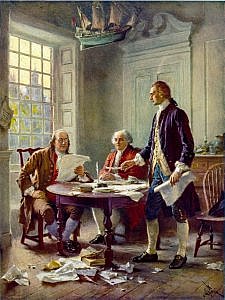 ser magistrates. This biblical idea, known as interposition, is rooted in Scripture and was written about by early Christian leaders, practiced by the barons and bishops at the time of the Magna Carta, and applied during the Protestant Reformation. The concept of interposition was developed in the writings of John Calvin (Institutes), the French Huegenots (Vindiciae Contra Tyrannos, 1579), John Knox, and Samuel Rutherford (Lex Rex, 1644). England applied interposition in the Glorious Revolution when the Parliament invited William of Orange to rule in place of James II.
ser magistrates. This biblical idea, known as interposition, is rooted in Scripture and was written about by early Christian leaders, practiced by the barons and bishops at the time of the Magna Carta, and applied during the Protestant Reformation. The concept of interposition was developed in the writings of John Calvin (Institutes), the French Huegenots (Vindiciae Contra Tyrannos, 1579), John Knox, and Samuel Rutherford (Lex Rex, 1644). England applied interposition in the Glorious Revolution when the Parliament invited William of Orange to rule in place of James II.
Lesser magistrates have the right and duty to hold higher officials accountable to the law of the land and to divine law – to the laws of nature and of nature’s God. With the King rejecting all our petitions and even acting more contrary, we had no other recourse than to declare our independence.
The above list of Christian ideas contained in the Declaration of Independence is by no means exhaustive, but it is extensive enough to show the deep biblical reasoning and action of the Founding Fathers.
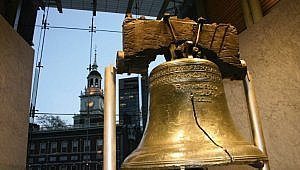



 , to name a few. It acknowledges God and His revealed will as the source of rights and law. It appeals directly to God as the Supreme Judge, protector, and provider. The ideas contained in our founding covenant reiterate those expressed in the civil documents written by the colonists in the 150 years prior to independence and show the Founders’ Christian faith.
, to name a few. It acknowledges God and His revealed will as the source of rights and law. It appeals directly to God as the Supreme Judge, protector, and provider. The ideas contained in our founding covenant reiterate those expressed in the civil documents written by the colonists in the 150 years prior to independence and show the Founders’ Christian faith. to the opinions of mankind requires that they should declare the causes which impel them to the separation.
to the opinions of mankind requires that they should declare the causes which impel them to the separation. not only delivered the precept but he also forged the instrument to execute it. To limit the power of the State ceased to be the hope of patient, ineffectual philosophers and became the perpetual charge of a universal Church.”
not only delivered the precept but he also forged the instrument to execute it. To limit the power of the State ceased to be the hope of patient, ineffectual philosophers and became the perpetual charge of a universal Church.” ser magistrates. This biblical idea, known as interposition, is rooted in Scripture and was written about by early Christian leaders, practiced by the barons and bishops at the time of the Magna Carta, and applied during the Protestant Reformation. The concept of interposition was developed in the writings of John Calvin (Institutes), the French Huegenots (Vindiciae Contra Tyrannos, 1579), John Knox, and Samuel Rutherford (Lex Rex, 1644). England applied interposition in the Glorious Revolution when the Parliament invited William of Orange to rule in place of James II.
ser magistrates. This biblical idea, known as interposition, is rooted in Scripture and was written about by early Christian leaders, practiced by the barons and bishops at the time of the Magna Carta, and applied during the Protestant Reformation. The concept of interposition was developed in the writings of John Calvin (Institutes), the French Huegenots (Vindiciae Contra Tyrannos, 1579), John Knox, and Samuel Rutherford (Lex Rex, 1644). England applied interposition in the Glorious Revolution when the Parliament invited William of Orange to rule in place of James II.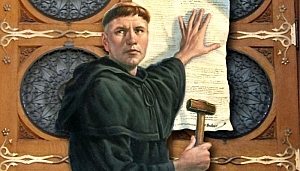
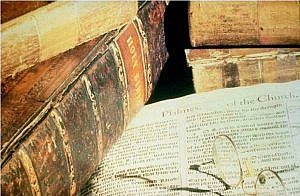 ims to be, the Word of God, then our adherence to its requirements is essential for life, here on the earth and in the eternal hereafter.
ims to be, the Word of God, then our adherence to its requirements is essential for life, here on the earth and in the eternal hereafter.